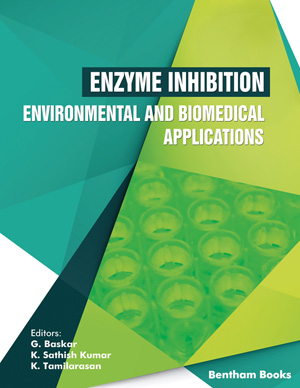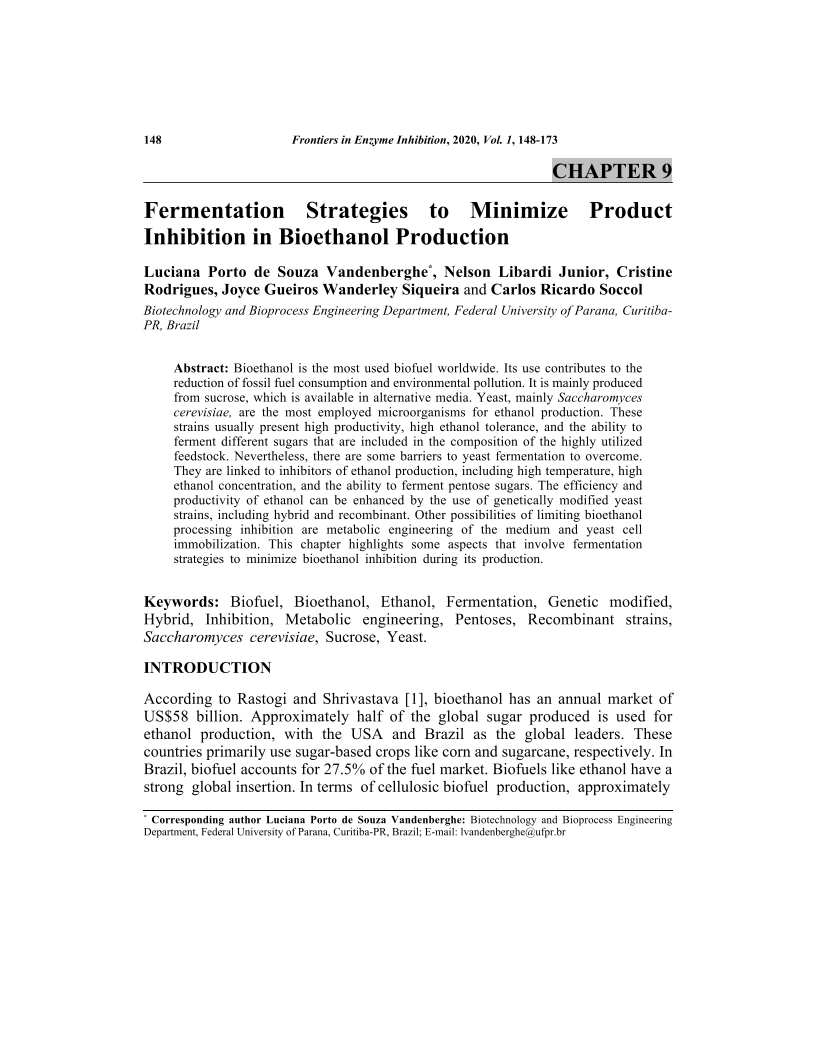Fermentation Strategies to Minimize Product Inhibition in Bioethanol Production

- Authors: Porto de Souza Vandenberghe Luciana1, Nelson Libardi Junior2, Cristine Rodrigues3, Joyce Gueiros Wanderley Siqueira4, Carlos Ricardo Soccol5
-
View Affiliations Hide Affiliations1 Biotechnology and Bioprocess Engineering Department, Federal University of Parana, Curitiba PR, Brazil 2 Biotechnology and Bioprocess Engineering Department, Federal University of Parana, Curitiba PR, Brazil 3 Biotechnology and Bioprocess Engineering Department, Federal University of Parana, Curitiba PR, Brazil 4 Biotechnology and Bioprocess Engineering Department, Federal University of Parana, Curitiba PR, Brazil 5 Biotechnology and Bioprocess Engineering Department, Federal University of Parana, Curitiba PR, Brazil
- Source: Enzyme Inhibition - Environmental and Biomedical Applications , pp 148-173
- Publication Date: August 2020
- Language: English
Fermentation Strategies to Minimize Product Inhibition in Bioethanol Production, Page 1 of 1
< Previous page | Next page > /docserver/preview/fulltext/9789811460821/chapter-9-1.gif
Bioethanol is the most used biofuel worldwide. Its use contributes to the reduction of fossil fuel consumption and environmental pollution. It is mainly produced from sucrose, which is available in alternative media. Yeast, mainly Saccharomyces cerevisiae, are the most employed microorganisms for ethanol production. These strains usually present high productivity, high ethanol tolerance, and the ability to ferment different sugars that are included in the composition of the highly utilized feedstock. Nevertheless, there are some barriers to yeast fermentation to overcome. They are linked to inhibitors of ethanol production, including high temperature, high ethanol concentration, and the ability to ferment pentose sugars. The efficiency and productivity of ethanol can be enhanced by the use of genetically modified yeast strains, including hybrid and recombinant. Other possibilities of limiting bioethanol processing inhibition are metabolic engineering of the medium and yeast cell immobilization. This chapter highlights some aspects that involve fermentation strategies to minimize bioethanol inhibition during its production.
-
From This Site
/content/books/9789811460821.chapter-9dcterms_subject,pub_keyword-contentType:Journal -contentType:Figure -contentType:Table -contentType:SupplementaryData105

